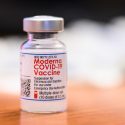COVID questions: Long haulers, travel guidance
Editor’s note: We will be publishing answers to questions about COVID-19 and the pandemic each week in this COVID questions column. If you have a question, please email it to covid19update@uc.wisc.edu.
Q: Why do some people continue to experience symptoms after recovering from COVID-19? Are there any known treatments?
A: There are two main categories of “long haulers.” First, patients who have been hospitalized for weeks or months in the ICU often have greatly impaired function after being on prolonged life support. Some of these patients could also be recovering from severe complications caused by the virus, such as strokes, blood clots, cardiovascular disease, or other related organ damage.
Second, some patients who had only mild COVID-19 illness, not requiring hospitalization or other critical medical treatments, have developed either new or recurrent symptoms persisting for months after the initial infection. Many are young, previously healthy individuals. Research is currently underway to determine the risk factors that may predispose someone to this syndrome.
The most common post-COVID-19 symptom consistently reported in the studies to date is fatigue or generalized muscle weakness. Shortness of breath, palpitations, sleeping difficulties, anxiety, depression, joint pain, chest pain, altered smell or taste, headaches, cognitive difficulties (brain fog) are also common.
In studies of patients who required hospitalization for COVID-19, up to 75 percent reported at least one symptom persisting six months after infection. One in five still showed evidence of decreased lung function six months later, even if they did not require oxygen during their hospitalization. The syndrome is less common in patients who had mild COVID-19 infection and did not require hospitalization. According to reports from large population-based studies, approximately 10-20% of these patients go on to develop “long-haul COVID.”
Research into the reasons behind post-acute COVID-19 syndrome are ongoing. Some believe it is due to an over-reactive immune response to the virus, or the result of persistent inflammation after the initial infection.
A treatment specific to these “long haulers” has not yet been identified. Pending more research, treatment would be determined based on the patient’s individual symptoms and condition. Management includes a multidisciplinary approach, relying on what we have learned from similar syndromes. In previous, related syndromes, most patients eventually returned to normal, with holistic support, rest, symptomatic treatment and progressive activity increases, as tolerated.
– Aurora Pop-Vicas, infectious disease specialist at UW Health, from UW Health newsroom.
Q: “My husband and I, who both received the COVID vaccine, are considering an April trip to Florida to visit my parents, who have also both received the COVID vaccine. We also have an unvaccinated 8-year-old who attends in-person school. I’m wondering what we all need to consider for our trip, such as: What is the safest way to travel to FL (train, plane, car, etc.)? Do we need to research the COVID rates in our area before we go, or in their area of FL? It won’t be possible to quarantine before we leave, so should we be tested right before instead? Anything we should (or shouldn’t) do once we’re together?”
A: New Interim Public Health Recommendations for Fully Vaccinated People now allow for fully vaccinated individuals to see each other indoors without wearing masks or physical distancing. Your 8-year old is considered to be at low risk for severe COVID-19 illness, so your grandparents can hug their grandchild without worry. All of you can feel confident that you can personally avoid severe illness if you become exposed and infected with SARS-CoV-2.
However, the CDC has not yet updated their guidelines for travel. As of February 16, because of high-levels of COVID-19 in the U.S. and the world, the CDC is recommending that people regardless of vaccination status not travel if it can be avoided. So, traveling by car will minimize how much you are around unvaccinated people. If you choose public transportation, the CDC does not require testing prior to departure, but getting a viral test 1-3 days before you travel is not a bad idea. If you test negative, keep a copy of your test results along with proof of vaccination with you during travel in case you are asked for them. If you test positive, you should not travel. During transit, any of the three of you could conceivably “pick up the virus” and spread it to others, particularly to those who are not vaccinated. Thus, masks are required on planes, buses, trains, and other forms of public transportation and at airports and stations.
Traveling within and back from Florida is a concern because of the higher prevalence of the B.1.1.7 variant in that state. The B.1.1.7 is more infectious, and according to the CDC, there have been more cases of that variant detected in Florida (N=642 as of 3/8/21) than in any other state.
The CDC recommends that fully vaccinated people avoid medium- and large-sized in-person gatherings. When around people who are unvaccinated and at increased risk for severe COVID-19. you should wear a well-fitted mask and maintain physical distance. You do not need to quarantine unless you are exposed to someone with COVID-19.
The latest CDC guidance (2/11/21) does not require fully vaccinated people to quarantine after exposure to someone with COVID-19 if the exposure is between two weeks and three months after the second dose. However, if a vaccinated individual is symptomatic after exposure, a healthcare worker, or a resident of a healthcare facility (e.g., inpatient or nursing home resident), then quarantine after known exposure is required despite vaccination.
Expect the CDC recommendations to be updated as more people are vaccinated, as the level of community spread changes, and as new science of COVID-19 vaccines continues to emerge.
– Ajay Sethi, associate professor of population health sciences



